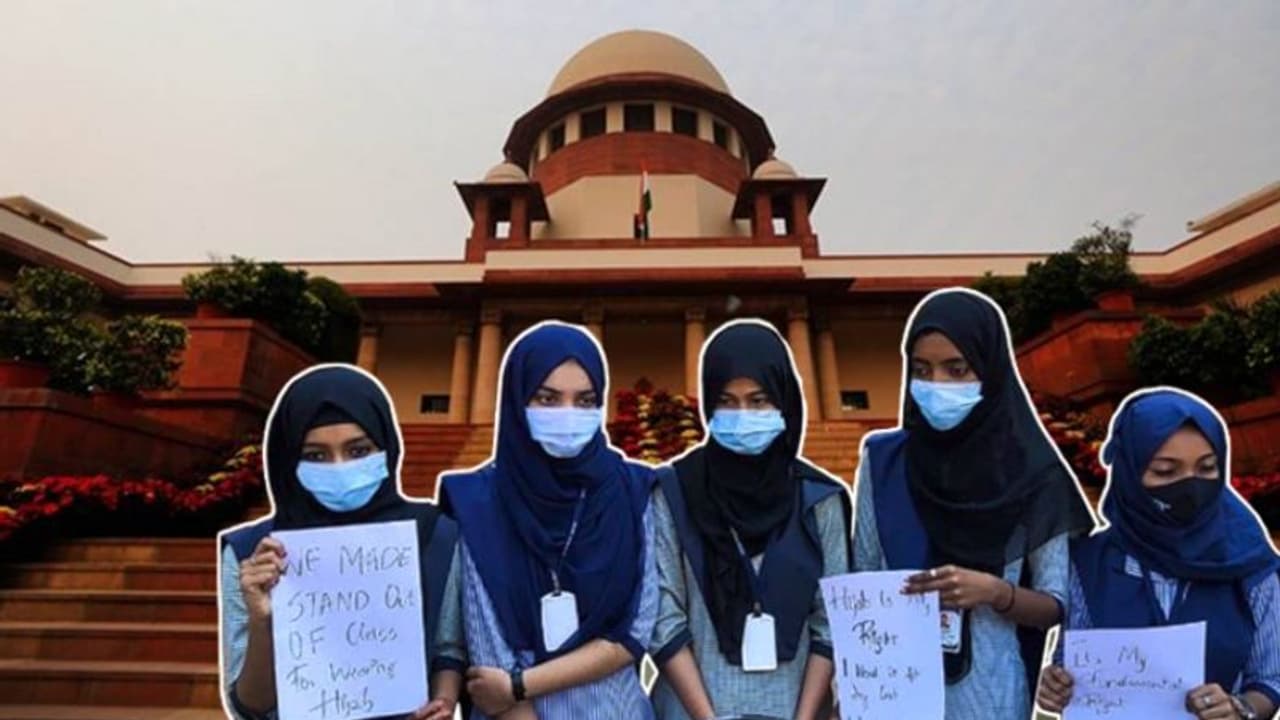Justice Hemant Gupta upholds the verdict of the Karnataka High Court while Justice Sudhanshu Dhulia allows all the appeals and sets aside the judgment of the Karnataka High Court
The Supreme Court on Thursday delivered a split verdict on the hijab ban, with Justice Hemant Gupta upholding the verdict of the Karnataka High Court while Justice Sudhanshu Dhulia allowed all the appeals and set aside the judgment of the Karnataka High Court. The split verdict means that the matter will now be placed before the Chief Justice of India for constituting an appropriate larger bench.

The split verdicts came on a batch of petitions challenging the Karnataka High Court judgment that had refused to lift the ban on hijab in the state's educational institutions.
Substantiating his verdict, Justice Dhulia observed that hijab is a matter of choice, nothing more and nothing less. The judge further said that the high court had taken the wrong path when it made the concept of essential religious practice essential to the dispute. It is ultimately a matter of choice and Articles 14 and 19 of the Constitution, he said, quashing the Karnataka government order and ordering the removal of the restrictions.
Reacting to the verdict, the Karnataka government said, "the ban on hijab will continue."
"Worldwide, women are opposing Hijab. They are demanding their rights. We were expecting that SC would uphold the HC verdict. We are not disappointed by the SC verdict," Karnataka Education Minister B C Nagesh said.
The bench had -- after hearing arguments in the matter for 10 days -- reserved its verdict on the petitions on September 22. The Karnataka High Court had on March 15 dismissed the petitions filed by some Muslim students of Udupi-based Government Pre-University Girls College seeking permission to wear the hijab inside classrooms. The court had ruled that wearing the hijab inside classrooms was not a part of the essential religious practice in the Islamic faith.
During the arguments in the apex court, the petitioners' counsel insisted that preventing Muslim girls from wearing the hijab to the classroom would jeopardise their education as they might stop attending classes.
The petitioners argued on various issues, including the state government's February 5, 2022, order banning clothes that disturb integrity, equality and public order in schools and colleges. Some members of the counsel also argued that the matter should be referred to a five-judge constitution bench.
On the other hand, the state government counsel argued that the Karnataka government order was 'religion neutral'. The state government's counsel argued in the Apex court that if the state government had not acted the way it did, it would have been 'guilty of dereliction of constitutional duty'. It further contended that the pro-hijab protests in educational institutions were not a "spontaneous act" by a few individuals.
